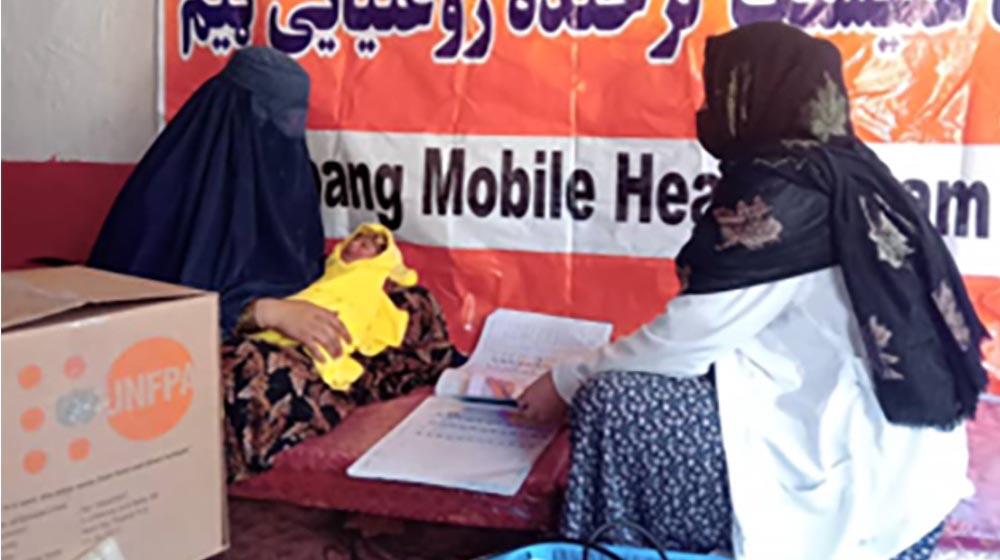Laghman, Afghanistan – Pregnancy is often a period of anticipation and excitement for would-be mothers like Khatera. However, as she neared her due date, the feeling of uncertainty overwhelmed her due to the lack of access to free maternal health care.
Khatera, 30, said she had only visited a doctor once during the early stages of her pregnancy because it was a private clinic, and poverty hindered her from going back for further antenatal care.
"I knew the importance of seeing a midwife or doctor for pregnancy consultations, but I had to pay, which my family could not afford,” she said. “It was impossible to cover the costs for more visits."
Khatera was in the eighth month of pregnancy when she learned about the UNFPA-supported Mobile Health Team that brings free health services, including maternal healthcare, to her community. "When I discovered that MHT provides free treatment, I was overjoyed. I did not expect such health services to come to our community,” she said.
"The next morning, I visited the MHT," Khatera recounted. "I met the midwife and told her I was almost nine months pregnant and feeling stressed." The midwife, Nazifa, thoroughly examined Khatera, ensuring there were no signs of pregnancy complications. The MHT also provided psychosocial counselling to the expectant mother to ensure her physical and psychological well-being before welcoming her newborn.
Khatera was given the essential medicines. The midwife also advised her to contact the MHT anytime she needed emergency support.
Khatera's interaction with the MHT, especially with the midwife, gave her confidence and alleviated her anxiety about the upcoming birth. "The midwife was very supportive, assuring me that she is just a phone call away if I needed her," she said.
Two weeks later, Khatera felt contractions that intensified within hours.
"It was midnight when I received the phone call from Khatera’s husband, asking for immediate help," Nazifa recalled. She quickly gathered her midwifery supplies, and within 15 minutes, she was at the doorstep of Khatera’s house. She was about to deliver.
In less than an hour, a baby’s cry filled Khatera’s home. The midwife’s quick and timely response to the call was crucial to the smooth normal delivery of Khatera’s baby.
A few weeks ago, Khatera was stressed and worried because she was uncertain if she would safely deliver her child. Khatera learned about the MHT, supported by the Government of the United Kingdom, just before she delivered her baby.
Before leaving, Nazifa advised Khatera to visit the MHT with her baby to receive postnatal and newborn care the next time the MHT comes to her village.
Because of her positive experience with the MHT, Khatera hopes that maternal healthcare such as that offered by the MHT will be available everywhere so all pregnant women can receive the same level of care and support they received. The pivotal role played by the MHT, particularly in swiftly responding to Khatera's emergency call, underscores the tangible impact of accessible and skilled maternal healthcare services in safeguarding lives and fostering healthier childbirth experiences in underserved communities.


